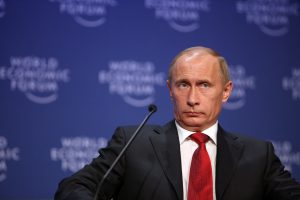The Maastricht criteria have lived and died, and the Thatcherian era with them. We will not return to them, anyhow not for a long time, and certainly not in the form in which they were known, for what has killed them is a cluster of convergences in which the coronavirus merely dealt the final blow to those ceilings under which the Union was running out of steam.
At the beginning of this turning point, there was Trump. By questioning the automaticity of the American umbrella and declaring that European unity had been designed only to compete with the US economy, Donald Trump suddenly convinced the Union that it needed to lay the foundations of a common defence and invest jointly in research and industries of the future.
Everything remains to be done still, but, thanks to Trump, what was taboo became consensual and China, in turn, got things moving when the European capitals realised that 5G was Chinese, that the Chinese armies could do what they wanted in the South China Sea and that the fate of Taiwan was being determined in Hong Kong. Challenged by Russian faits accomplis in Ukraine and the Middle East, Europe was also challenged by the economic and military power of Beijing at a time when the American ally is becoming uncertain and chaos is growing on the other side of the Mediterranean.
Long before this pandemic developed, the problem was no longer one of balancing budgets and limiting deficits. It was to exist and to assert oneself in a world where each of the biggest players is suddenly playing its card, and that is not all.
Since the far right turned the tables in Germany and Spain, the most rigorous European has had to admit, even in Berlin, that austerity could kill the economy by sowing social discontent and overturning the political chessboard. The Yellow Vests, Vox and AfD had thus shaken three decades of neo-liberal certainties at the very moment when German industry rediscovered a fragility that returned the budgetary weapon the right to be used.
The coronavirus had, in other words, not yet claimed a single victim in China when Keynes was starting to make his return, and it was no longer so indisputable that the State was the problem and not the solution; that, in a word, the merits of public power, social protection, industrial policies and joint investment were being rediscovered.
By de-demonising deficits and imposing the need for budgetary flexibility in the face of the pandemic, the coronavirus has only consolidated the end of the cycle which was opened by Margaret Thatcher’s first electoral victory and California’s anti-tax revolt in the 1970s. Forty years later, Europe is entering a new cycle and it would come as no surprise if the United States were to follow suit when, faced with a health catastrophe that has been predicted, it will discover the advantages of medical cover guaranteed to all by national solidarity and the merits of the European model preached by Bernie Sanders.
Yes, perhaps, it is not impossible, one might say, but for the time being, the European States are closing their borders and it is their governments, not the Commission, nor the Council or the Parliament, that are at work. True, but it is not just the states that are withdrawing. States are also isolating cities and regions, as China did before us. There is nothing absurd or alarming for our unity, and it is not surprising that national governments are in charge either, since there is no European government.
As regrettable as it may be, the Union is not a federation, not yet, and the key issue today is that the Commission, Germany, France, the Parliament and all the European capitals are converging around the idea that it is necessary, “whatever the cost”, to tackle the converging challenges through a common political will for joint investment and budgetary stimulus. This does not ensure immediate unanimity in the decision, but the turning point has been reached, that of a change of an era.


